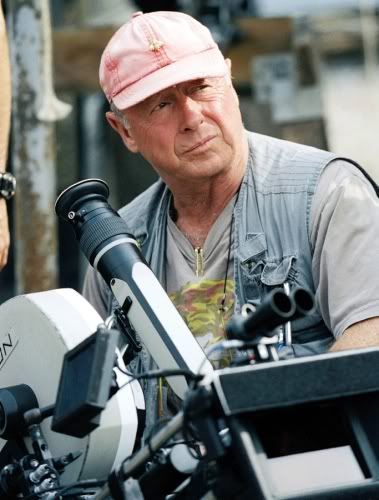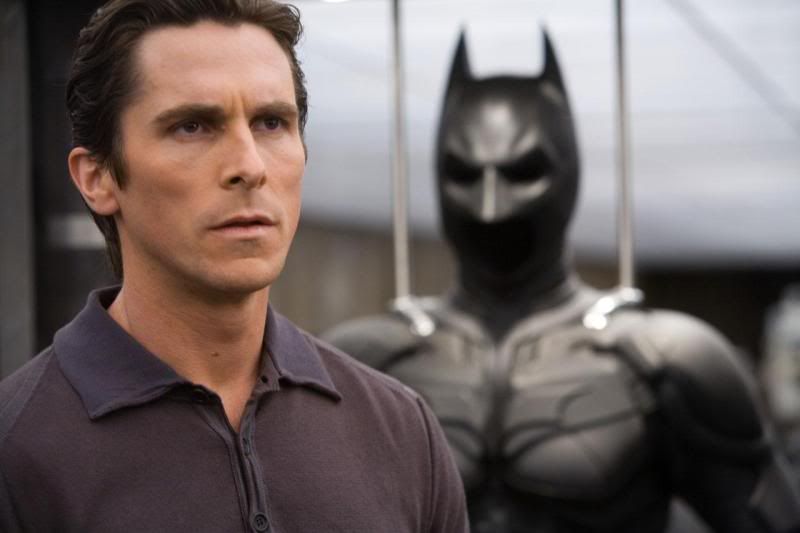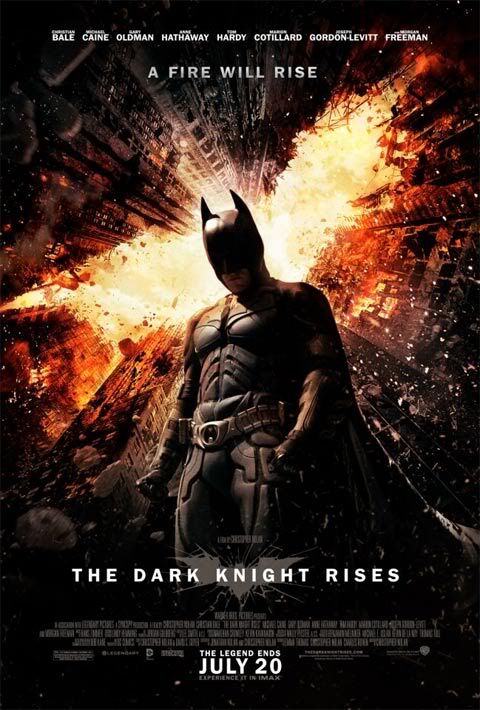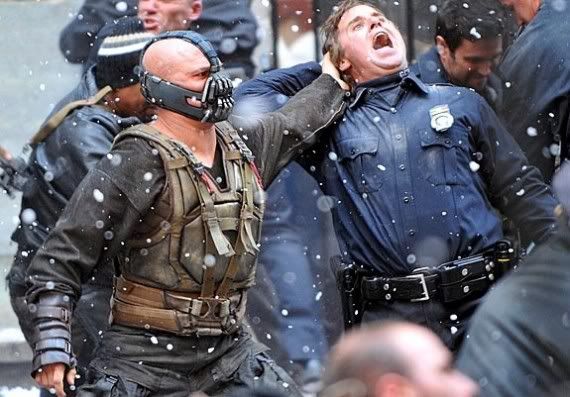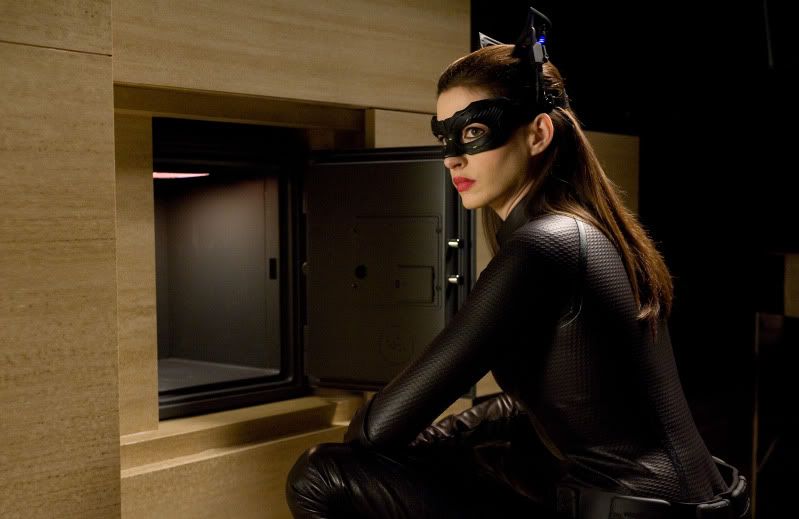This may be one of the most difficult reviews I’ve ever written. Not because the material is difficult or intentionally inscrutable (Antichrist) or highly subjective (Repo! The Genetic Opera) but because there are key aspects to The Cabin in the Woods that make me want to recommend it that I simply cannot tell you. I mean, I CAN… I’m physically and mentally capable of doing so. But I won’t. This review will be spoiler free, even if it will be hard to write as a result.
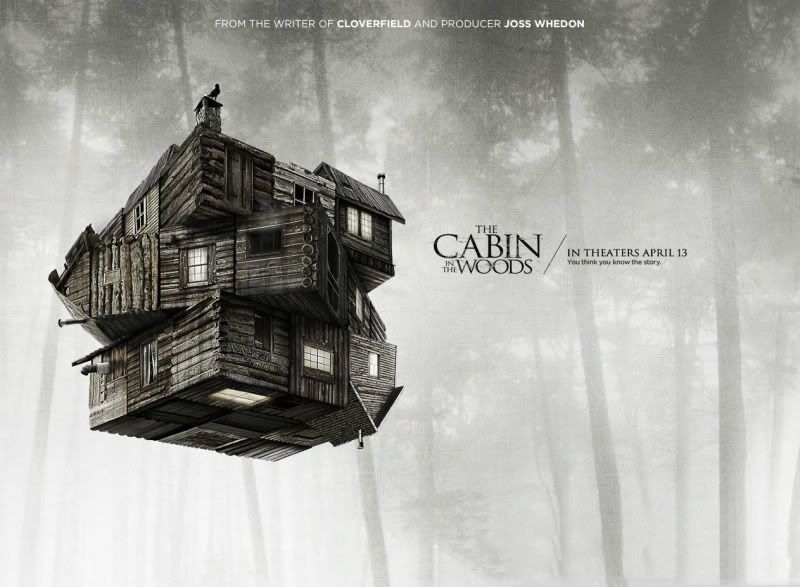
The Cabin in the Woods begins with about as stereotypical a premise for a slasher movie as you can get. Five college kids who superficially fit the broad archetypes of a thousand slasher movies before it head out for a weekend at the eponymous homestead and find sinister things in the cellar. The first of the movie’s many twists (which was already spoiled in the trailers so I can talk about it without breaking my self-imposed moratorium) is that those items, and in fact the entire situation, is being controlled and manipulated from another location. From surveillance equipment to environmental controls, every aspect of the scenario is aimed towards the doom of these kids. And that’s just the first ten minutes or so of the film.
It’s made apparent from the very beginning that this is not your average slasher flick. Outside of the outside influences manipulating the situation, our core cast is a bit more diverse and intelligent than you might expect. All five of our characters show measures of some depth or ingenuity, at least before they arrive at the cabin. Soon, though, all of them are falling into their roles, as prescribed by their archetypes, which is again a result of the controls being imposed upon them for inscrutable reasons. At least, inscrutable to them – we do discover the whys and wherefores of those in control, as the stakes continue to go up and the body count starts to rise.
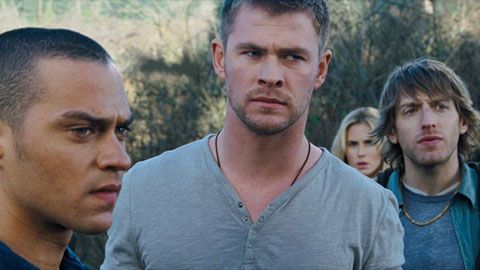
Thor is unimpressed with your shenanigans.
The Cabin in the Woods was written by Joss Whedon. While there are some who will attack him for an apparent lack of character voice or other issues related to his projects, what sets this particular screenplay of his apart is the balancing act he pulls. There’s something fascinating about the harrowing experiences of the five young people in the cabin juxtaposed with the procedural, business-as-usual, even bland situations in the control rooms. And just when you think a pattern has been established, the pace changes and the situation escalates. This is definitely a credit to the writing, and to Drew Goddard’s direction.
In addition to the mix of the aforementioned elements is the surprising amount of humor in The Cabin in the Woods. Rather than relying on jump-out scares to keep the audience engaged, the trappings of the story abate any nail-biting and is either eliciting a laugh or provoking a question in our minds. Add to this mix a pretty decent and likable cast, a no-frills approach to design, and a third act that just explodes with potential and escalation, and you have a surprisingly good movie.
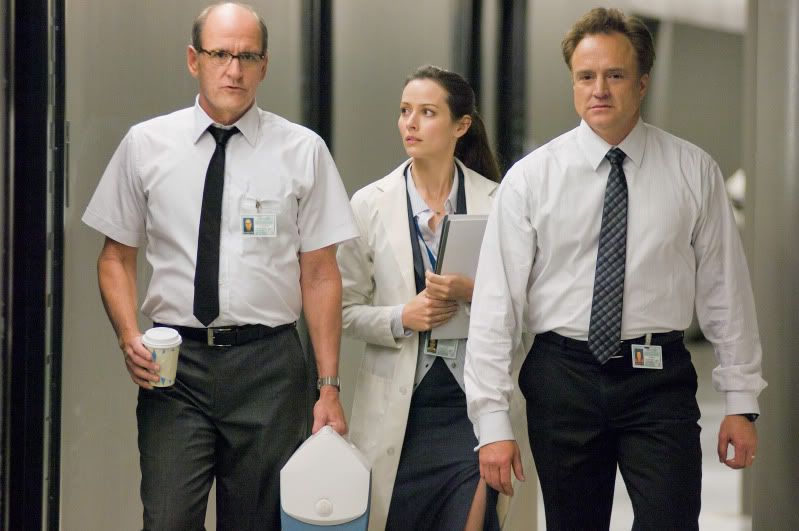
“I’ve got a 3 o’clock tee time, let’s start butchering teenagers.”
Stuff I Liked: The way the students interact at first, and how their behavior changes. The entire setup. The pacing of the reveals.
Stuff I Didn’t Like: The nature of the film makes it very difficult to write about. I can see where some people may object to Whedon’s writing. I wanted to know a little bit more about the controllers – how exactly does one apply for that job?
Stuff I Loved: Fran Kranz’s stoner. The atmosphere of the cabin and the minute details of the aspects controlled in it. All of the things I can’t talk about.
Bottom Line: I was surprised at how much I enjoyed The Cabin in the Woods. In my opinion it’s a better deconstruction of the horror movie than Scream. It’s fascinating, scary, funny, and a lot of fun. I highly recommend it.

